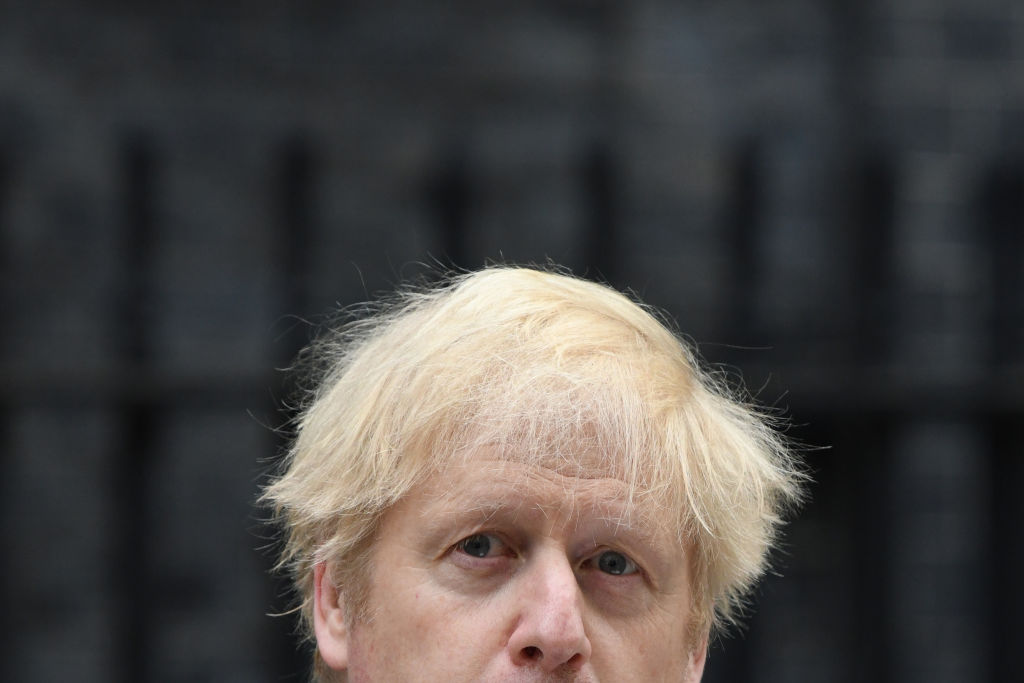Do Alan Clark’s diaries have a lesson for us about Boris Johnson’s ability to continually defy the odds? In his entry of 7 April, 1982, Clark wrote about the whiff of mutiny in the air among Tory grandees towards Margaret Thatcher at the time of the Falklands War: ‘It is monstrous that senior Tories should be behaving in this way. It is only on occasions such as this that the implacable hatred in which certain established figures hold the Prime Minister can be detected…If by some miracle the expedition succeeds they know, and dread, that she will be established for ever as a national hero…The greater the humiliation…the greater the likelihood of a lash-up coalition, without a general election, to fudge things’.
It could have been a description of the travails of Boris Johnson last autumn as he tried to deliver EU withdrawal while leading figures from the Tory establishment did all they could to hamper him, humiliate him, block an election and promote instead the idea of a cross-party ‘Government of National Unity’ to fudge things.
But the expedition succeeded and Boris was established as a hero, smashing Labour en route almost as thoroughly in the December 2019 general election as Thatcher did in the post-Falklands contest of June 1983.
Thatcher showed her mettle again at the 1984 Tory conference in Brighton by making a defiant platform speech just hours after her own brush with death at the hands of an IRA bomber. Boris Johnson’s sidestepping of the Grim Reaper took him out of action for rather longer but now he, too, is back to lead the nation against a deadly foe.
And, as in the case of the Iron Lady, he benefits from having an against-the-odds epic success already under his belt. Enough people have now bought into him for his command of the stage to be the first fact of British politics.
In his two podium appearances since his return on Monday, it has been obvious that he is not yet back to full vim and vigour. But even Boris at half-wattage can transmit like nobody else an undaunted sense of confidence about our national prospects.
He has already skilfully broken the sense of stasis that surrounded the Government’s coronavirus fight in his absence, just by signalling that he will set out next week the first chapter of an unfolding story about how we exit from lockdown, reopen schools, restore public transport and ‘fire-up the engines’ of the UK economy.
His most striking statement since his comeback was in answer to a question about the possibility of falling back into austerity as a means of paying the coronavirus bills. Saying that he had never liked the term, he added: ‘It will certainly not be part of our approach.’
So even after sticking £300bn on the national credit card just as projections for the Government’s future income streams have plummeted, Boris ruled out a protracted round of belt-tightening as even a partial method of paying for it all. While he spoke about the potential for the UK economy to bounce back strongly, I’ve an inkling that the PM must also be working on something else to render this all affordable.
Perhaps he has a plan to issue ‘Boris Bonds’ to spread out those Covid costs over several decades – and do not, for a moment, think he is short of the chutzpah necessary to allow an enormous debt burden to be associated with himself in the public consciousness and to make it seem like the best thing since sliced bread.
Perhaps his bullishness and boosterism about UK economic prospects post-Covid really will be enough on their own to ignite the animal spirits of investors and consumers alike and deliver a torrent of new revenues into Treasury coffers.
The man who has already escaped from the clutches of a cabal of opponents in his own party, a largely critical media, Labour’s election onslaught and the mugger that is coronavirus – and has just become a father again at 55 – has certainly forged a formidable connection with large sections of the electorate by enlisting what Alan Clark defined elsewhere in his diaries as ‘the basic patriotism of the working classes; far stronger than the what’s-in-it-for-me motivation of the managerial class, ‘Industry’ and ‘The City’.’
In any event, for the many millions of voters content to farm-out the big political decisions to a strong and patriotic leader just so long as they gauge that a strong and patriotic leader is in place, the return of Boris Johnson will do very nicely.







Comments